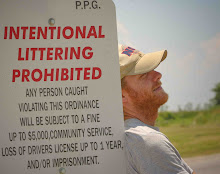Some types of taxes are levied on things that are considered socially harmful. For example, there are alcohol and cigarette taxes, the intended purposes of which are to dissuade people from consuming these drugs in excess, and to raise funds to deal with the legal and health consequences of alcohol and tobacco abuse.
| Negative externality price-demand curve |
These types of levies are known as Pigovian taxes. Named after the economist Arthur Pigou, a Pigovian tax attempts to correct for negative externalities in the market. Negative externalities are costs not reflected in prices, but still born in human suffering, environmental harm, or price increases in other goods and services.
Foreclosures generate numerous and significant negative externalities that are not reflected in the cost of carrying out a foreclosure. So why not institute a tax on foreclosures to dissuade banks from taking people's homes, and to compensate communities hit hard by the housing crisis?
Foreclosure of residential homes has undeniably harmed millions of families and individuals who have lost their residences in the last three years. The dislocation, stress, and loss of equity affects more than just the family losing their home, however. Harm is spread throughout communities where foreclosures are concentrated. School districts and cities lose property tax revenues and population. Local businesses lose workers and customers. Empty homes drag down local economies and become blighted.
Solution: tax the banks when they cause harm. Prevent foreclosures by modifying the incentives and disincentives for creditors dealing with customers who fall behind in payment. Create a source of funds to compensate communities harmed by foreclosures that do proceed.
Here's how it could work. Suppose a family, we'll call them the "Morgans," bought a house for $300,000 at the height of the real estate bubble in 2006. Since the financial crash in 2008, the Morgan's house has plummeted in value to $150,000, but they're still paying a mortgage on the sale price of 300k. They're underwater and struggling.
Now let's say the Morgan family has recently been missing payments. It could be because of an adjustable rate mortgage that kicked into high gear. Or maybe a Grandpa Morgan is sick, and the medical bills have exhausted the family's savings. Or maybe Mrs. Morgan lost her job, and there simply aren't opportunities to make nearly as much income again.
Whatever the problem, this family will soon be foreclosed upon. The bank, let's call it "JP-America-Fargo," will take their home, and they'll have to move.
But now suppose there's a Pigovian foreclosure tax. We could design the tax in innumerable ways, but here's a very simple one just to illustrate the point:
When JP-America-Fargo Bank forecloses on the Morgan family, it must pay 10% of the home's last sale price, or $25,000 — whichever is greater. (Or maybe we should peg it at 27%?)
This tax payment, or "bailout" if you will, could be split two ways. 25% of the foreclosure tax could go to the Morgan family, to help them recover from foreclosure, and 75% could go to the local school district where the house is located.
So if the Morgan's lost their home, JP-America-Fargo Bank would have to pay 10% of $300k - $30k. The Morgan's get $7,500 of this, and local public schools get $22,500.
There are conceivable cases where a home's sale price is incredibly small because it was purchased decades ago, thus a 10% tax on that price would be a bargain for a bank to pay in order to foreclose on property worth much more. This is why we have the alternative minimum of $25,000.
The tax is high enough to create a massive disincentive for banks to foreclose on homeowners, pressuring banks instead to help homeowners who are underwater or who are otherwise having trouble making payments refinance their mortgages and stay put.
10%, or $25,000 might seem like an enormous tax, but keep in mind that the federal government bailed out most of the biggest banks that are carrying out the bulk of foreclosures. Trillions of dollars were spent making the JP-America-Fargo Banks of the world solvent. Little to nothing has been done to help homeowners (and what was tried earlier was geared too much to the needs of banks, not homeowners).
A Pigovian foreclosure tax could help reverse this injustice and prevent socially harmful corporate behavior such as mass foreclosures from continuing to damage America.

No comments:
Post a Comment